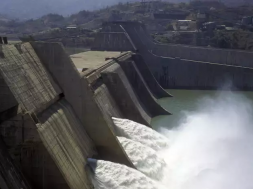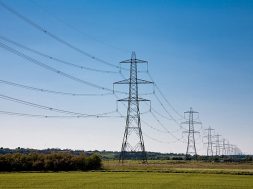
In Short : The World Economic Forum (WEF) Global Risks Report 2024 counts extreme weather events and critical change to earth systems as the greatest concerns facing the world over the next decade.
In Detail : New Delhi : The poisonous air is shortening lives across India, Bengaluru is grappling with a severe water crisis, while Sikkim and Himachal Pradesh are yet to fully recover from the devastating glacial lake outburst and flash floods last year.
Despite this, these issues remain secondary to livelihood concerns and are yet to hold significant sway in national elections, experts say.
One reason for this, they say, is that political and social movements in India predominantly focus on livelihood issues.
Tikender Singh Panwar, former deputy mayor of Shimla, told PTI that the lack of social mobilisation linking the environment with livelihoods is a major obstacle.
He praised Kerala’s approach to risk-informed climate development but noted the challenges in states like Himachal Pradesh and Uttarakhand due to the absence of such movements connecting disasters with livelihood and governance issues.
The Communist Party of India (Marxist) member said it would take another five to 10 years for environmental issues to become mainstream in the country.
“You can see what Sonam (Wangchuk) is doing in Ladakh. Even in Delhi, when it is air pollution, you find some noises being made. But these are just on the periphery,” Panwar said.
Wangchuk is leading a “climate fast” to demand tribal area status for Ladakh, which he says will help protect the fragile ecology and tribal identity of the region.
The World Economic Forum (WEF) Global Risks Report 2024 counts extreme weather events and critical change to earth systems as the greatest concerns facing the world over the next decade.
A survey conducted by the Yale Program on Climate Change Communication (YPCCC) and Centre for Voting Opinion and Trends in Election Research (CVoter) in 2021-2022 showed that 84 per cent Indians believe that climate change is real and most of them acknowledge that it stems from anthropogenic activities.
Several smaller political parties have also prioritised climate change in their manifestos for previous elections, focusing on issues such as sustainable agriculture, eco-tourism, and promoting renewable energy.
“Still, not many would vote on these issues in elections,” says Debadityo Sinha, a senior resident fellow at the Vidhi Centre for Legal Policy in Delhi.
“Environmental concerns will gain prominence in elections only after we address fundamental human needs. Food, water and health take precedence. The majority of the population, busy earning a livelihood, tends to overlook environmental issues until these directly impact their daily lives,” he said.
However, in states with a higher per capita income, there tends to be greater political awareness among people regarding environmental issues. In these states, political parties are expected to prioritise concerns, such as reversing environmental degradation, safeguarding forests and water resources and combating air pollution and climate change, Sinha said.
Renowned environmentalist Sunita Narain said while air pollution features prominently on the political agenda for cities, especially in heavily-polluted urban centres like Delhi, the inclusion of environmental concerns in party manifestos does not necessarily translate into effective action at a significant scale.
“Cooperative efforts are essential, but finger-pointing between central and state governments, as well as among different states within a region, is counterproductive. For instance, if Delhi faces environmental challenges, so do Punjab and Haryana,” she said.
To address these issues effectively, all the stakeholders must come together at a common table for meaningful discussions. Unfortunately, the current fractured and polarised political landscape makes such cooperation increasingly difficult, Narain, the director general of independent think tank Centre for Science and Environment, said.
In 2019, the Bharatiya Janata Party (BJP) and the Congress included forest conservation and air pollution in their election manifestos for the first time. However, promises like the BJP’s “green bonus” for Himalayan states remain unfulfilled.
The Congress recognised air pollution as a national public health emergency and pledged to strengthen the National Clean Air Programme.
Yet, despite these inclusions, environmental concerns continue to be overshadowed by populist issues, such as free water and power, during elections.
Aarti Khosla, founder of Climate Trends, a Delhi-based policy outreach organisation, said it is important to simplify complex environmental topics to demonstrate their impact on daily life.
There is an urgent need for policymakers and researchers to collaborate in addressing environmental challenges for the country’s well-being. With India facing threats from climate change and air pollution, understanding the personal effects of environmental decisions becomes crucial for both elected officials and voters, she said.












